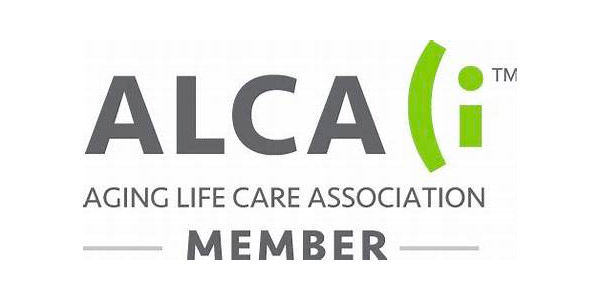
Hello to all our Clients, Families and Colleagues,
Summer is reaching its peak, and we’re delighted to bring you our latest updates and insights for the season. This edition is packed with valuable information and resources designed to support your journey through life’s transitions. Whether you’re planning for the future or navigating the present, our content is here to inspire and guide you!
Featured in this month’s newsletter:
-
Planning for your “Retirement Years”: What is the elephant in the room that no one wants to talk about?
-
Joan Harris Interviews Deborah Cartisser, Senior Wealth Advisor – Assisting Your Parents’ Finances: When & How
-
The Dangers of Urinary Tract Infections for older adults with Dementia:
What you need to know -
Memory Matters Book Club – A great event for learning together
-
New Alzheimer’s Medication: FDA approves treatment for adults with Alzheimer’s disease
-
COVID-19 Vaccine available in August: Why is this so important for older adults?
Planning for Your Retirement Years: What is the elephant in the room that no one wants to talk about?
By Joan Harris, LSW, MBA, CMC
 In my 40 years of experience working with older adults in every environment, there is one crystal clear fact that I have learned: No one wants to plan for the end of their lives. This is understandable. Why would we want to think about that when we are focused on making our current lives the best that it can be? But this is the elephant in the room. If we are going to be honest, no one wants to talk about the inevitable decline that comes when we get into our 80’s, 90’s and as centenarians. By not identifying your vision of your older years, and becoming educated about the options available to you, you give up control over the choices that you can proactively take so that you have the best possible quality of life and end-of-life. Actively participating now with experienced guidance in the decisions that must be made is not only going to give you tremendous peace of mind, but it will optimize your comfort and peace and is the greatest gift you can give your family.
In my 40 years of experience working with older adults in every environment, there is one crystal clear fact that I have learned: No one wants to plan for the end of their lives. This is understandable. Why would we want to think about that when we are focused on making our current lives the best that it can be? But this is the elephant in the room. If we are going to be honest, no one wants to talk about the inevitable decline that comes when we get into our 80’s, 90’s and as centenarians. By not identifying your vision of your older years, and becoming educated about the options available to you, you give up control over the choices that you can proactively take so that you have the best possible quality of life and end-of-life. Actively participating now with experienced guidance in the decisions that must be made is not only going to give you tremendous peace of mind, but it will optimize your comfort and peace and is the greatest gift you can give your family.
As a Social Worker specializing in Geriatrics, whether in a low-income state funded home care, hospital discharge planning, skilled nursing facilities, senior living communities, private non-medical home care and most intensely over the past 17 years as an Aging Life Care Manager, people come to us when they are stuck, and are having a crisis and do not know what to do. They have been managing as best they can with the complexity of physical and cognitive disorders, trying to navigate in a health care system that is not designed to help them. Many people we meet have a clear goal to “Age in Place” at home but through no fault of their own, cannot find the needed quality, private care services. The post-covid world is that much more difficult to navigate with a shortage of staffing in every care environment. As client advocates, Aging Life Care Professionals jump in to “fix” the situation as best we can and help people understand their rights and options for support at home, senior living communities and skilled nursing rehabilitation facilities. We implement sophisticated plans ensuring the highest quality of care. Our Care Management clients are most often already very far down the road in aging and the opportunity for education and prevention is limited. We are often supporting their families and primary caregivers.
My mission and passion for the remainder of my career is to get to people sooner than we typically do in Care Management. Engaging in our planning process before there is decline, we can steer their ship to a much smoother course for retirement and through their end-of-life. We can avoid the reactivity that often causes disease processes to accelerate and outcomes to be poor. What does this really mean? How can I help people to age well?
We start with exercises that help our clients articulate where they see themselves in the future, what their priorities are and what will give their lives the greatest meaning. We then investigate all the data points around them including: physical health, cognitive status, all diagnoses, geographical constraints or wishes, cultural preferences, leisure activities, and medical expertise that they may need. Is the setting urban, suburban or rural? Our xpert in depth assessment flows into a detailed client centered plan that provides a complete Roadmap to their Best Retirement Life. This includes the best quality services, professional team members to add to their team, trusted agencies with contacts & pricing, and facilities/communities that would be a “fit” for their back up plan. Most importantly, this in depth education empowers our clients to make informed decisions.
If we plan our financial retirement, why would we not plan our own care and take that burden off those we love? Offering this robust continuum of aging services keeps our clients living their best lives. They will avoid getting caught off guard with the changes that aging brings.
Together, we can do this.
SCM’s Highlights
Joan Harris Interviews Deborah Cartisser, Senior Wealth Advisor: Assisting Your Parents’ Finances – When & How
In this video, Joan interviews Deborah Cartisser, a Senior Wealth Advisor at Twelve Points Wealth Management, they discuss and explore crucial tips for adult children on how to assist their aging parents with financial management.
Click below to watch this interview and learn to identify key signs of financial struggles, understand when and how to step in, and discover practical steps to ensure your parents’ financial well-being. Whether you’re concerned about a loved one or looking for guidance on managing their finances, this video offers valuable advice and actionable strategies.
Watch The Interview Below!
Company Updates
Memory Matters Book – A great event for learning together

At our recent two-part Memory Matters Book Club, we explored the principles of Habilitation Therapy, a holistic approach and strategies for care partners of individuals with dementia designed to enhance their quality of life. We sent out to participants assigned reading to facilitate our discussion centered around this philosophy of care. Habilitation Therapy emphasizes valuing the remaining capacities of individuals and fostering positive emotions throughout their day. We reviewed how Habilitation Therapy focuses on maximizing functional independence and morale, rather than treating the disease itself. By integrating these principles into various domains; physical, social, communication, functional, and behavioral, care partners can create a supportive environment that both engages and uplifts those in their care.
Our discussions also included practical applications and real-life scenarios, allowing participants to discuss how they could apply habilitation therapy in different caregiving situations. We highlighted strategies for creating a calming physical environment, engaging individuals in meaningful activities, and adapting communication techniques to maintain emotional connections and minimize negative emotions and interactions. Through open-ended questions and shared experiences, attendees gained valuable insights into enhancing both the emotional well-being of those with dementia and the overall care partner experience.
Julia Nickrosz, CDP, Dementia Specialist and Care Manager at Symphony Care Management is available to offer individualized coaching sessions. Call Symphony Care Management to schedule.
Bibliography for the Memory Matters Book Club:
– Learning to Speak Alzheimer’s: Joanne Koenig-Koste-A Groundbreaking Approach for Everyone Dealing with the Disease.
– Tattoo on my Brain: Daniel Gills with Teresa H. Barker-A Neurologist’s Personal Battle against Alzheimer’s Disease. 2023.
In the meantime, feel free to register below
Helpful Resources
The Dangers of Urinary Tract Infections: Especially for Older Adults with Dementia: What you need to know –
 For more information on UTIs and how to prevent them, visit the following resources:
For more information on UTIs and how to prevent them, visit the following resources:
Urinary tract infections (UTIs) are a significant health concern, especially for older adults and individuals with dementia. These infections can cause changes in mental status, such as increased confusion, agitation, and lethargy. Often, UTIs in those with dementia go undetected due to their inability to report symptoms or the infection being asymptomatic. This can lead to hospitalization, which we strive to prevent through education and awareness.
Risk Factors for UTIs
Older adults are at an increased risk of developing UTIs due to several factors:
-
Changes in the immune system
-
Exposure to different bacteria in hospitals or care facilities
-
Other health conditions, such as incontinence
-
History of prior UTIs
-
Changes in the urinary system, including prostatic hypertrophy in males
-
Presence of a urinary catheter
Symptoms of UTIs
Recognizing the symptoms of UTIs is crucial for early detection and treatment. Common symptoms include:
-
Urgent need to urinate
-
Increased frequency of urination
-
Burning, pain, or discomfort during urination
-
Pressure in the lower abdomen or pelvis
-
Cloudy, thick, or odorous urine
-
Bladder not feeling empty after urination
-
Fever
-
Pain in the lower abdomen, flank, or back
-
Blood in the urine
-
Fatigue
-
Nausea
-
Vomiting
Treatment and Recurrence
UTIs are typically treated with antibiotics. However, they can recur, and some individuals are prone to chronic UTIs. Preventive measures are essential to reduce the likelihood of infections.
Preventive Steps for Urinary Health
Harvard Healthcare recommends four lifestyle changes to maintain proper hygiene and reduce the risk of UTIs:
-
Maintain Proper Hygiene:
-
Regular bathing and thorough drying after cleaning.
-
Wipe from front to back after using the toilet.
-
-
Stay Hydrated:
-
Drink plenty of fluids, especially water, to help flush out bacteria.
-
Aim for at least 6-8 glasses of water daily unless advised otherwise by a healthcare provider.
-
-
Frequent Urination:
-
Empty the bladder every 2-3 hours to prevent bacterial growth.
-
Avoid holding urine for extended periods.
-
-
Wear Appropriate Clothing:
-
Avoid tight-fitting clothing to promote airflow and reduce moisture.
-
Choose loose-fitting, breathable clothing and cotton underwear.
-
Additional Tips for Urinary Health
-
Cranberry Products:
-
Cranberry juice or supplements may help prevent UTIs by preventing bacteria from adhering to the bladder wall.
-
-
Probiotics:
-
Probiotics, particularly Lactobacillus, can help maintain a healthy balance of bacteria and prevent UTIs.
-
-
Medications:
-
For those prone to recurrent UTIs, low-dose antibiotics may be prescribed as a preventive measure.
-
Manage underlying health conditions, such as diabetes or incontinence, to reduce the risk of UTIs.
-
-
Catheter Care:
-
Proper management of urinary catheters is essential to prevent infections. Follow healthcare provider recommendations for cleaning and changing catheters.
-
Monitoring and Early Detection
Regular medical check-ups can help detect and manage any changes in urinary health early on. For individuals with dementia, caregivers should monitor for changes in behavior, increased confusion, or agitation, which may indicate a UTI.
By implementing these preventive measures and staying vigilant about urinary health, the risk of UTIs can be significantly reduced. This improves overall well-being and reduces the likelihood of hospitalization due to these infections.
Brain Health
FDA Approves New Medication for Adults with Alzheimer’s Disease
(This is an abbreviated version of the FDA approval article).
 Action
Action
The U.S. Food and Drug Administration has approved Kisunla (donanemab-azbt) injection for the treatment of Alzheimer’s disease. Treatment with Kisunla should be initiated in patients with mild cognitive impairment or mild dementia stage of disease, the population in which treatment was studied in the clinical trials.
Kisunla is administered as an intravenous infusion every four weeks. The recommended dosage is detailed in the prescribing information.
Disease or Condition
Alzheimer’s disease is an irreversible, progressive brain disorder affecting more than 6.5 million Americans that slowly destroys memory and thinking skills and, eventually, the ability to carry out simple tasks. While the specific causes of Alzheimer’s are not fully known, it is characterized by changes in the brain—including amyloid beta plaques and neurofibrillary, or tau, tangles—that result in loss of neurons and their connections. These changes affect a person’s ability to remember, think and speak.
Safety Information
The most common side effects of Kisunla were ARIA and headache.
See full prescribing information for additional information on risks associated with Kisunla.
Note: Talk with your neurologist to learn more about treatment efficacy, side effects and safety.
Source: https://www.fda.gov/drugs/news-events-human-drugs/fda-approves-treatment-adults-alzheimers-disease
Health Care News and Updates
COVID-19 Vaccination Available in August: Why is this so important for Older Adults?
 High-risk season is coming: Protect yourself from Covid 19 and the flu as recommended by the CDC.
High-risk season is coming: Protect yourself from Covid 19 and the flu as recommended by the CDC.
CDC Recommends Updated 2024-2025 COVID-19 and Flu Vaccines for Fall/Winter Virus Season.
Updated 2024-2025 COVID-19 Vaccine Recommendation
CDC recommends everyone ages 6 months and older receive an updated 2024-2025 COVID-19 vaccine to protect against the potentially serious outcomes of COVID-19 this fall and winter whether or not they have ever previously been vaccinated with a COVID-19 vaccine. Updated COVID-19 vaccines will be available from Moderna, Novavax, and Pfizer later this year. This recommendation will take effect as soon as the new vaccines are available.
The virus that causes COVID-19, SARS-CoV-2, is always changing and protection from COVID-19 vaccines declines over time. Receiving an updated 2024-2025 COVID-19 vaccine can restore and enhance protection against the virus variants currently responsible for most infections and hospitalizations in the United States. COVID-19 vaccination also reduces the chance of suffering the effects of Long COVID, which can develop during or following acute infection and last for an extended duration.
Last season, people who received a 2023-2024 COVID-19 vaccine saw greater protection against illness and hospitalization than those who did not receive a 2023-2024 vaccine. To date, hundreds of millions of people have safely received a COVID-19 vaccine under the most intense vaccine safety monitoring in United States history.
Updated 2024-2025 Flu Vaccine Recommendation
CDC recommends everyone 6 months of age and older, with rare exceptions, receive an updated 2024-2025 flu vaccine to reduce the risk of influenza and its potentially serious complications this fall and winter. CDC encourages providers to begin their influenza vaccination planning efforts now and to vaccinate patients as indicated once 2024-2025 influenza vaccines become available.
Most people need only one dose of the flu vaccine each season. While CDC recommends flu vaccination as long as influenza viruses are circulating, September and October remain the best times for most people to get vaccinated. Flu vaccination in July and August is not recommended for most people, but there are several considerations regarding vaccination during those months for specific groups:
-
Pregnant people who are in their third trimester can get a flu vaccine in July or August to protect their babies from flu after birth, when they are too young to get vaccinated.
-
Children who need two doses of the flu vaccine should get their first dose of vaccine as soon as it becomes available. The second dose should be given at least four weeks after the first.
-
Vaccination in July or August can be considered for children who have health care visits during those months if there might not be another opportunity to vaccinate them.
-
For adults (especially those 65 years old and older) and pregnant people in the first and second trimester, vaccination in July and August should be avoided unless it won’t be possible to vaccinate in September or October.
Updated 2024-2025 flu vaccines will all be trivalent and will protect against an H1N1, H3N2 and a B/Victoria lineage virus. The composition of this season’s vaccine compared to last has been updated with a new influenza A(H3N2) virus.
Your team at Symphony Care Management can schedule and take you or your loved ones for vaccine appointments. Call our office to schedule.
Source:
https://www.cdc.gov/media/releases/2024/s-t0627-vaccine-recommendations.html
As we wrap up this edition, we hope the insights and resources shared have been valuable to you. Whether you’re taking steps toward future planning or managing daily responsibilities, remember that we’re here to support you every step of the way. Stay tuned for more updates in the coming months.
Wishing you a wonderful rest of summer!🌷
Join our newsletter below for a monthly dose of wellness straight to your inbox, from your friends at Symphony Care Management



